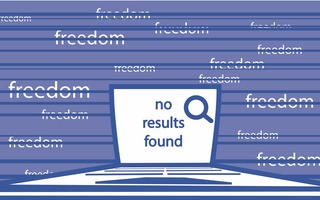Facebook has agreed to give unprecedented access to anonymized user data to a commission founded by Government Professor Gary King and Stanford Law Professor Nathaniel Persily in order to study the platform’s impact on elections and democracies.
King and Persily’s commission, composed of academics across the social sciences, will have access to all of Facebook’s user data in an anonymized form. The commission will also have the power to decide what data to give to independent researchers who will, for the first time in Facebook’s history, have the right to publish their findings without review by the company, according to King.
King said he and other social scientists have been trying to get access to large-scale social media data “for many years” with little success, but Facebook reached out to him “a few days” after it became public that Cambridge Anayltica—a political firm hired by Donald Trump's campaign—gained access to millions of Facebook user's private data and asked King to privately review their data to help them prevent similar mistakes in the future.
“I said, that’s noble of you, that’s terrific, and it would involve sharing data, which is a great thing, but there isn’t any way that would work, because I’m an independent academic,” King said.
{shortcode-a801ace7e0203faafa8ee85da510e17452a92e0c}
The social media company ultimately agreed to the “two-part” project, which King said will both keep user data anonymized and ensure that the company can’t prevent publication of unfavorable findings.
Facebook announced the initiative on April 9 through a press release written by Elliott Schrage, vice president of communications and David Ginsberg, the company’s director of research.
“We think it’s an important new model for partnerships between industry and academia,” Schrage and Ginsberg wrote. “Our goals are to understand Facebook’s impact on upcoming elections — like Brazil, India, Mexico and the US midterms — and to inform our future product and policy decisions.”
King said that the project will receive no money from Facebook. Instead, he said the research will be independently funded by grants from a coalition of “ideologically and substantively diverse” foundations, including the Hewlett and Sloan Foundations.
Hewlett Foundation Communications Director Vidya Krishnamurthy said the Foundation is focused on “strengthening the values, norms, and institutions of US democracy,” but said that the contributing foundations have a variety of aims.
“All of the funders who are involved with this come at this from a slightly different lens, but we all have a shared interest in supporting independent research that helps us get an evidence basis of what’s going on and therefore, what are the problems here, and what are possible solutions,” Krishnamurthy said.
King said he and Persily plan to announce the members of the commission in the next few weeks, and Facebook has so far agreed to share its data for one year.
King and Nathan Williams, the communications director for the Sloan Foundation, both said they hoped the project would become a long-term collaboration.
“Ideally, a year from now, we’d say, let’s keep doing this, and let’s ask more questions. Let’s see how Facebook affects friendships or family relationships,” Williams said.
—Staff writer Cecilia R. D’Arms can be reached at cecilia.d’arms@thecrimson.com.Read more in News
Police Commissioner Says He 'Absolutely' Supports Officers Who Arrested Harvard StudentRecommended Articles
-
Facebook Solidarity: One Click Humanitarianism Is Not the AnswerFacebook filters not only filter our profile pictures, they mask out our anger, passion, frustration, and energy into a single simplistic reaction rather than a sustained or impactful response.
-
Professors Criticize Landmark Study Undermining Psychology ResearchPsychology professor Daniel Gilbert and University professor Gary King criticized a 2015 study claiming that more than half of all psychology studies cannot be replicated, finding that the study itself contains replication flaws.
-
 What Does Facebook Think Free Speech is For?
What Does Facebook Think Free Speech is For? -
The Case for Ending Social MediaThis author offers an alternative to the usual incrementalism. Zuckerberg and his cohort should surrender their platforms.
-
 Facebook Suspends Harvard Prof’s Data Analytics Company Over User Privacy Concerns
Facebook Suspends Harvard Prof’s Data Analytics Company Over User Privacy Concerns













